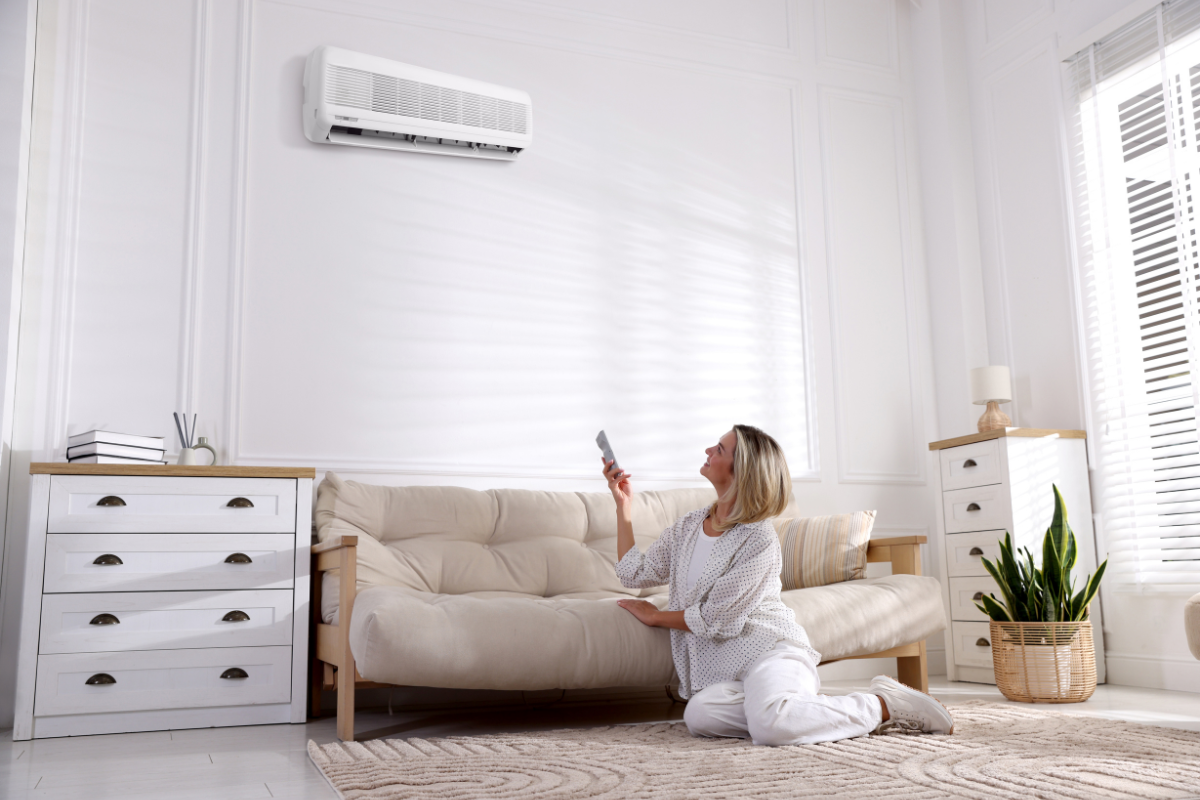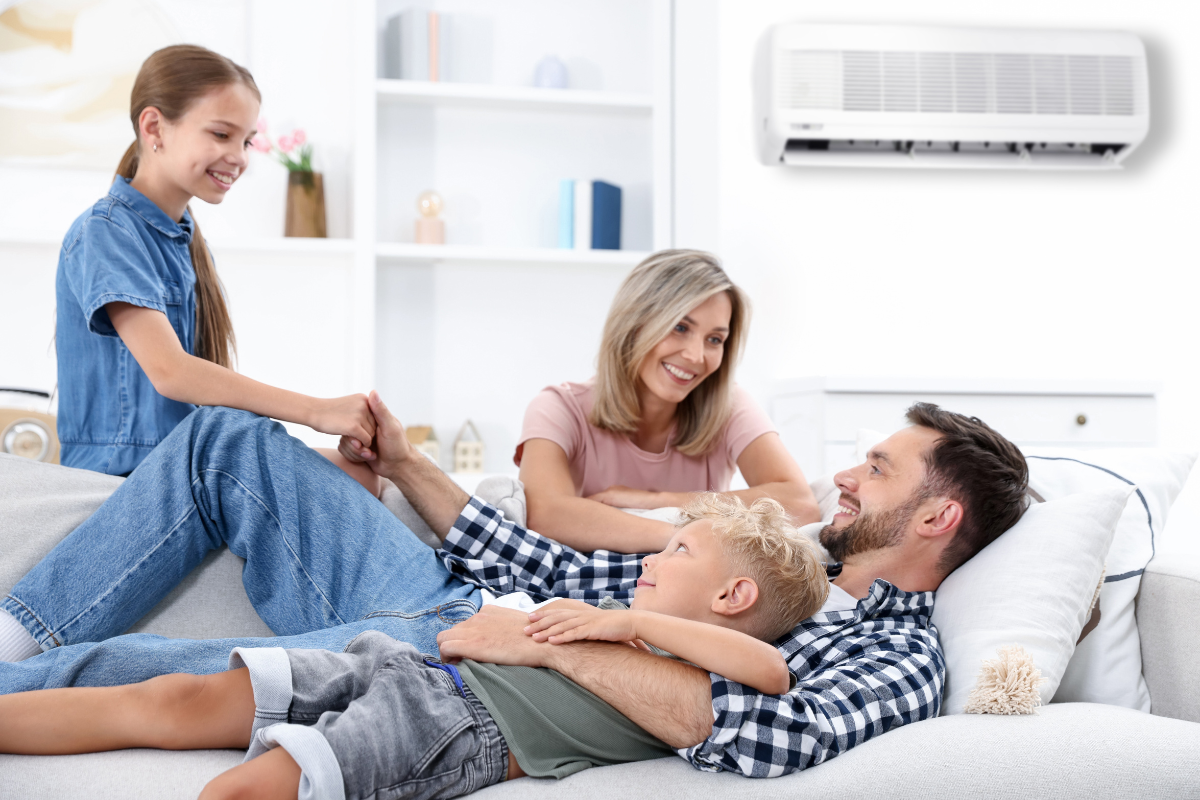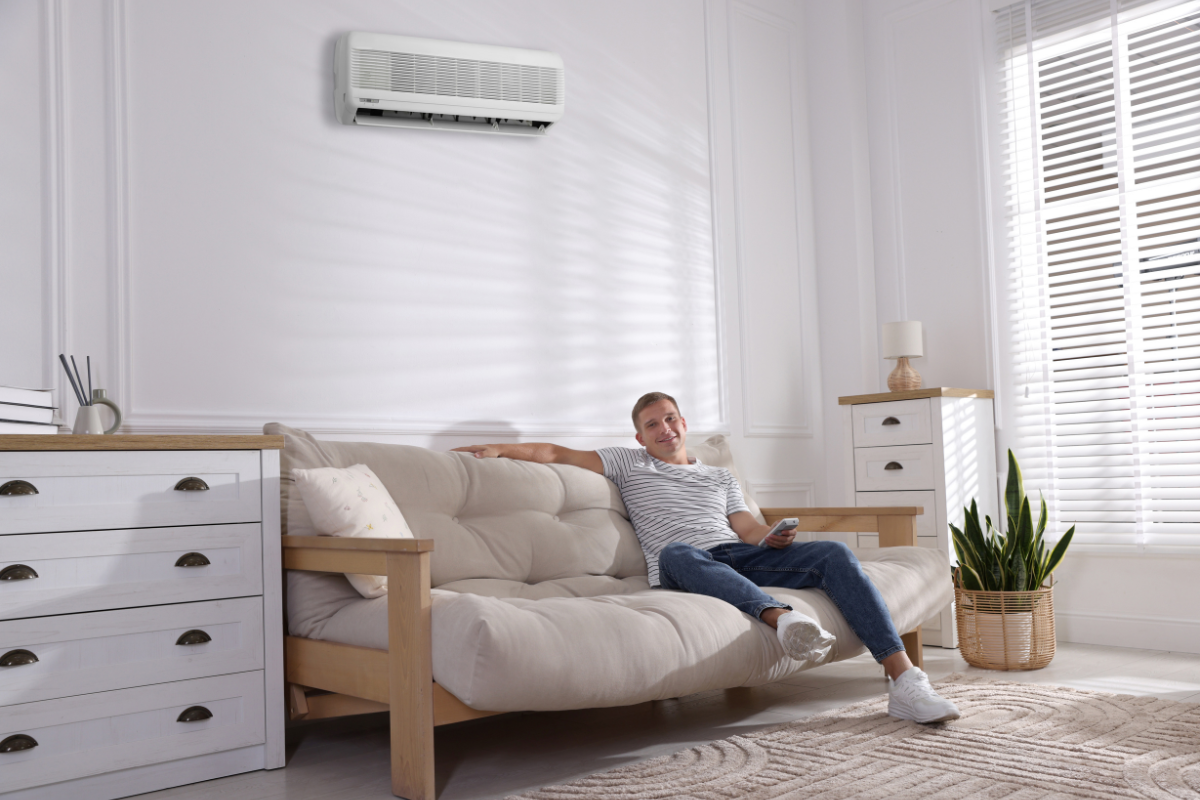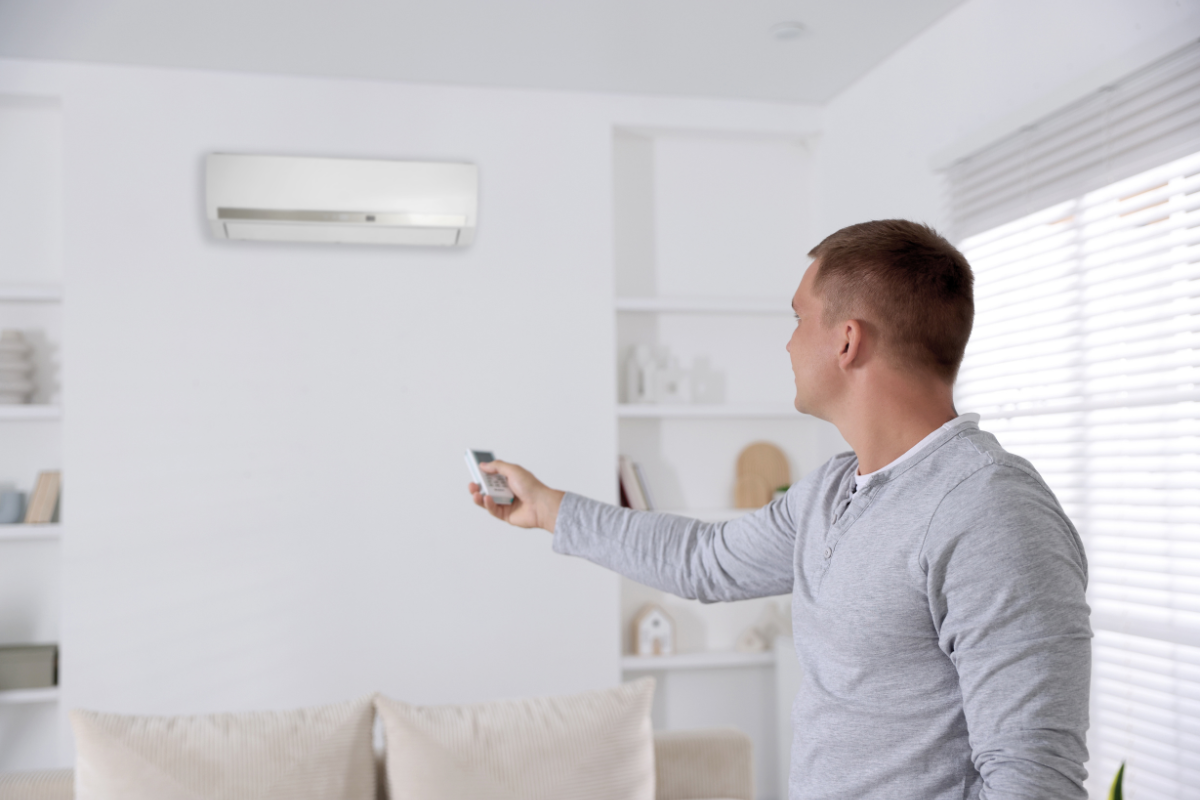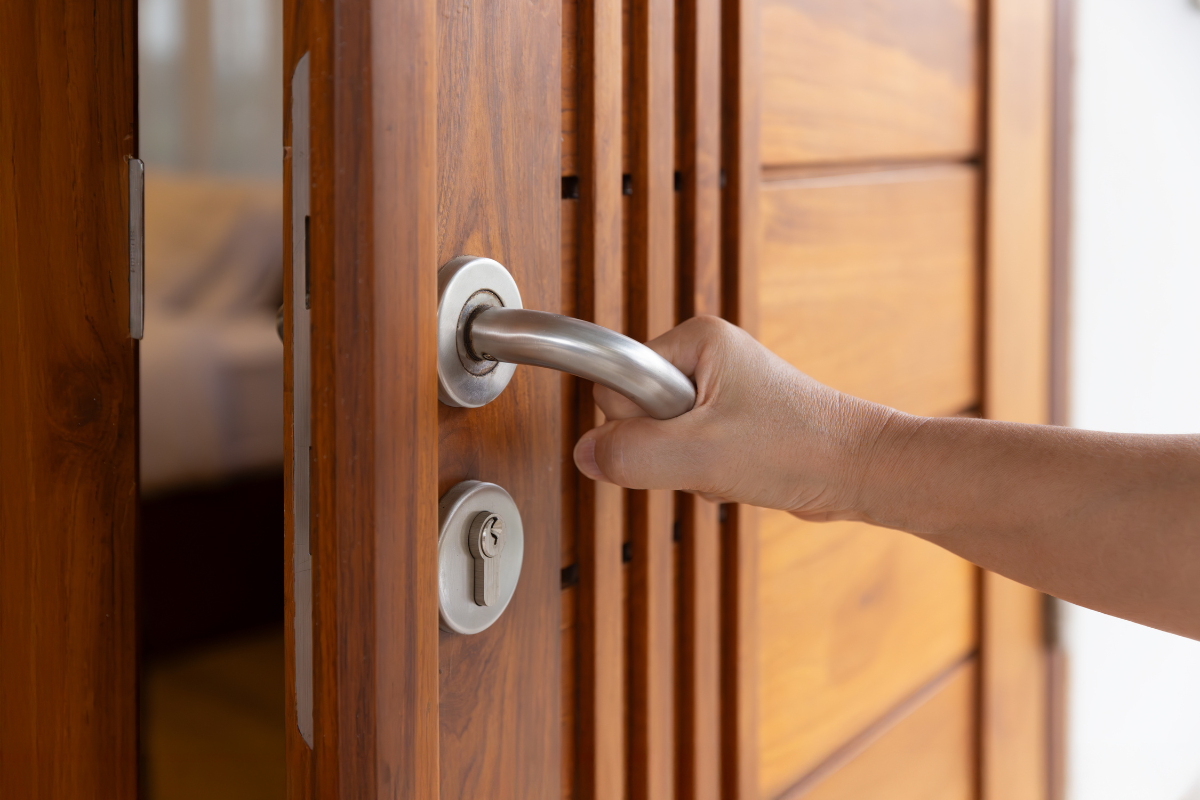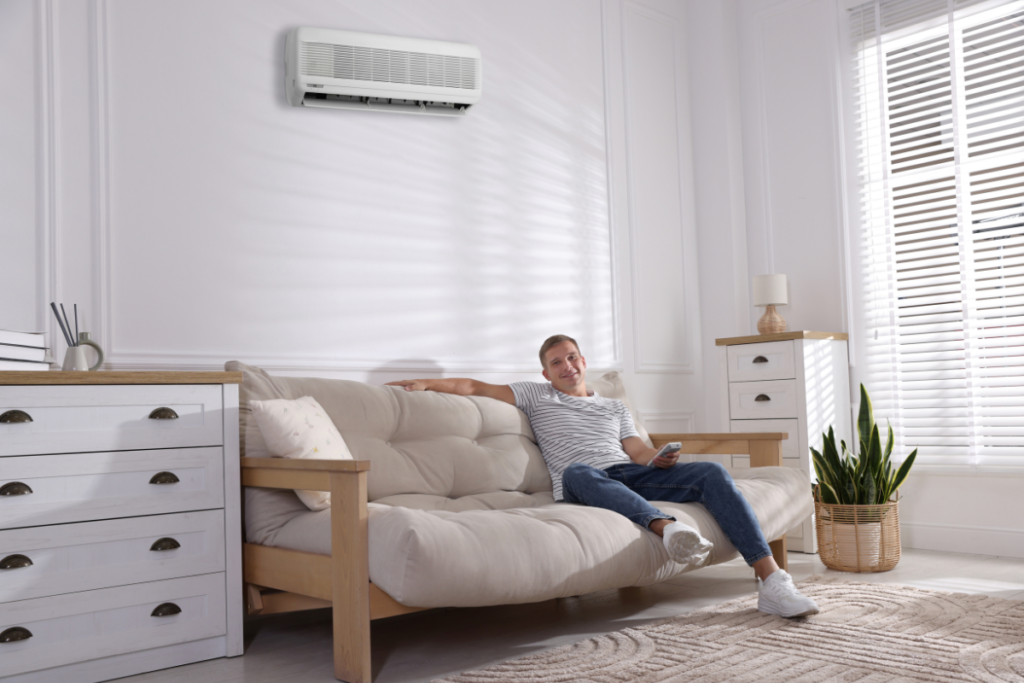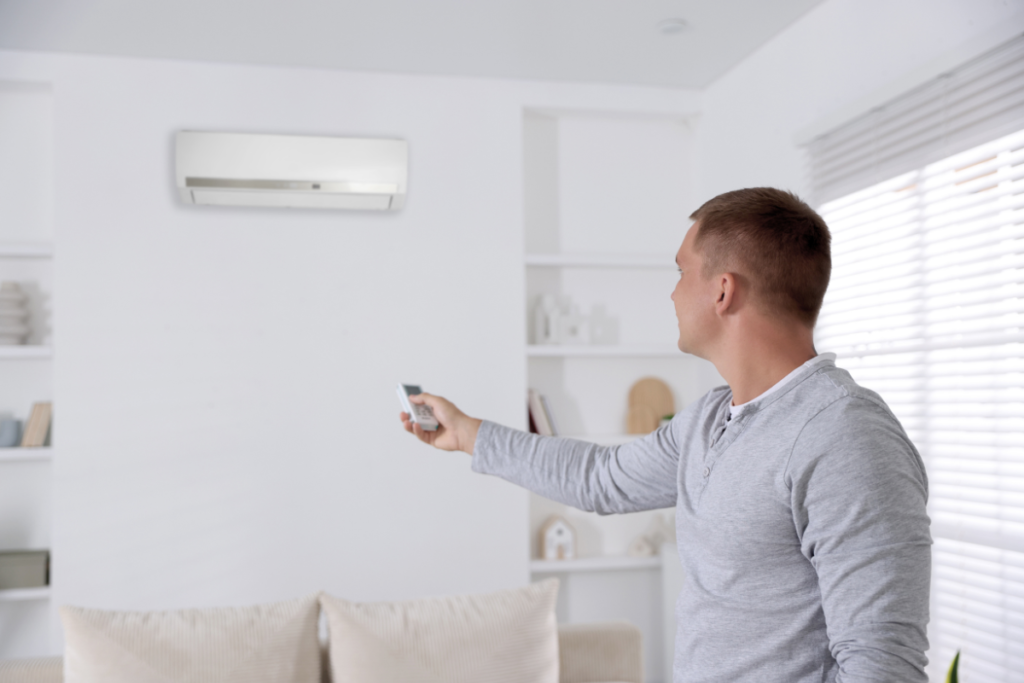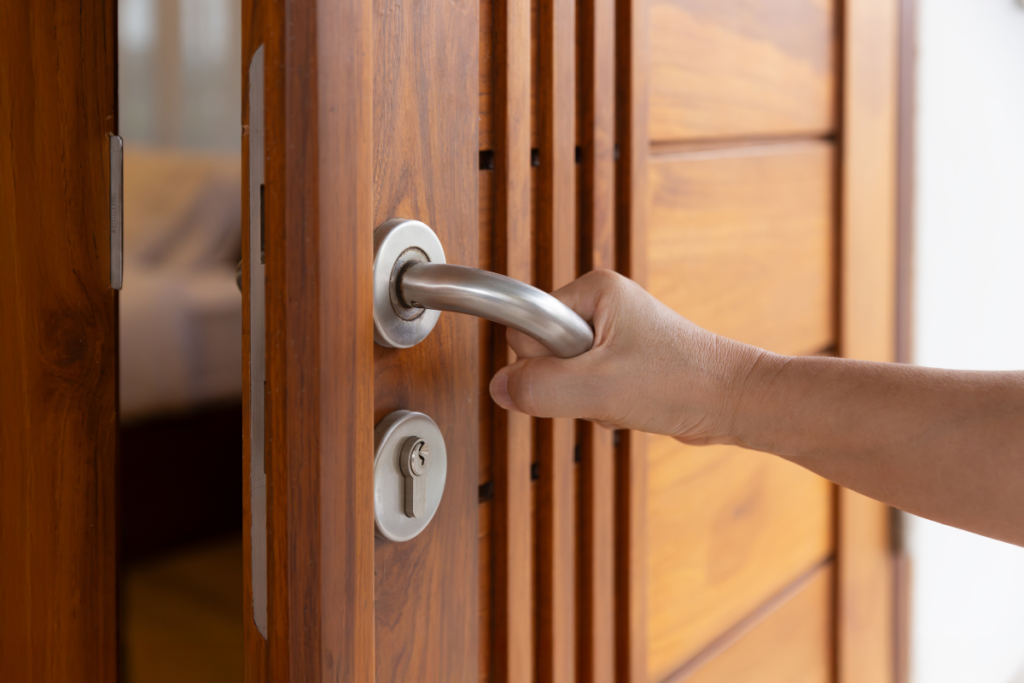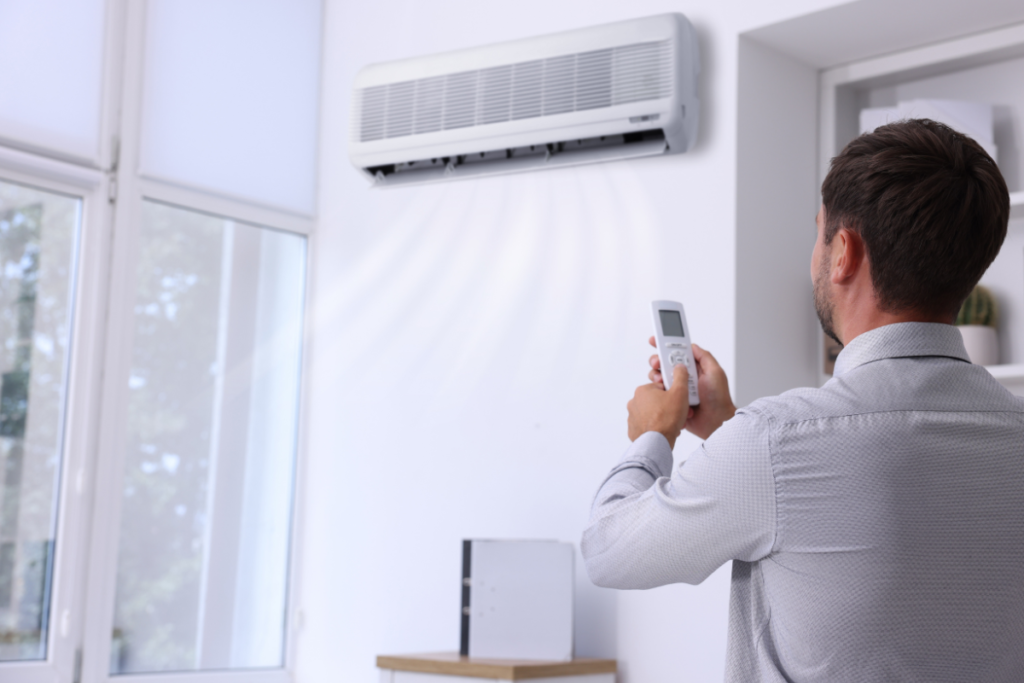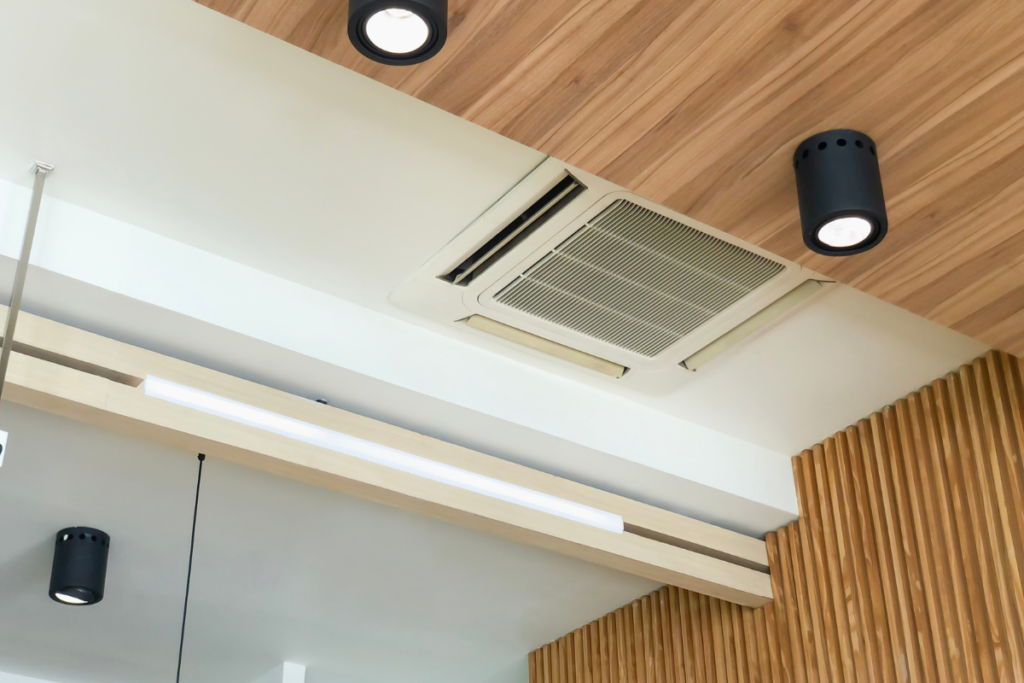With rising living costs and increasingly colder winters, many Australian households are asking the same question: What’s the cheapest way to heat your home this winter? According to Chris Barnes, heating expert at CHOICE, and DEEPCHILL, the answer depends on your budget, home setup, and long-term plans.
Table of contents
- 1. Reverse-cycle air conditioning: Cheapest to run, costliest to install
- 2. Gas heaters: Mid-range running costs, higher long-term concerns
- 3. Portable electric heaters: Low entry price, high running costs
- Cost comparison: Real numbers
- Heating hacks to save more this winter
- Want to heat your home smarter?
This guide from DEEPCHILL – air conditioning Gold Coast breaks down the true costs behind common ways to heat your and offers practical advice for keeping your home warm without breaking the bank. It is also backed by expert analysis and tested data from CHOICE – Australia’s leading consumer advocacy group.

1. Reverse-cycle air conditioning: Cheapest to run, costliest to install
“Running a reverse-cycle air conditioner for the entire year can cost less than running an electric heater for just three months over winter”, says Chris Barnes, CHOICE heating expert.
He also conducted tests, and the result shows that reverse-cycle air conditioners are the most efficient in terms of running costs. A model like the Mitsubishi Heavy Industries SRK25ZSXA-W costs about $128 to run over a typical winter season in average climate zones – less than half the cost of a portable electric heater.
However, installation is a major hurdle. A split-system unit can cost $2,000 to $5,500 depending on the model and home layout, with ducted systems reaching up to $15,000.
Still, the dual function of cooling in summer and heating in winter makes this a smart long-term investment.
2. Gas heaters: Mid-range running costs, higher long-term concerns
Gas heating ranks as the second-cheapest method to heat your home, but it comes with growing concerns around safety and environmental impact. As Chris notes:
“Gas is associated with potential health and safety risks in the home and is a polluting fossil fuel that creates greenhouse gases”.
Upfront costs for gas heaters range from $500 to over $1,000, with models like the Rinnai Dynamo 15 costing $317.50 to run over winter. However, gas prices are rising and systems require regular maintenance. Plus, restrictions apply: gas heaters can’t be used in bedrooms or small enclosed spaces without proper ventilation.
3. Portable electric heaters: Low entry price, high running costs
For renters or those unable to install permanent systems, portable electric heaters offer convenience. Starting at around $30, they’re ideal for small rooms or temporary use.
Yet CHOICE testing reveals a hidden cost:
“A portable electric heater can cost two to three times as much to run on average than a reverse-cycle air conditioner”, explains Chris Barnes.
For example, the Dimplex DHCERA20E ceramic heater costs just $145 upfront but racks up $411 in running costs over winter (based on 500 hours of use and a 40c/kWh electricity rate).
These reviews show that some budget heaters under $100 perform nearly as well as $400+ models, but performance varies greatly. Barnes warns that purchase price isn’t always an indicator of better performance or cheaper running costs.
Cost comparison: Real numbers
| Appliance | Upfront cost | Winter running cost* |
| Reverse-cycle air conditioner | $1,283 | $128 |
| Gas heater | $1,379 | $317.50 |
| Portable electric heaters | $145 | $411 |
*Based on 500 hours of use across 3 months in an average climate zone.
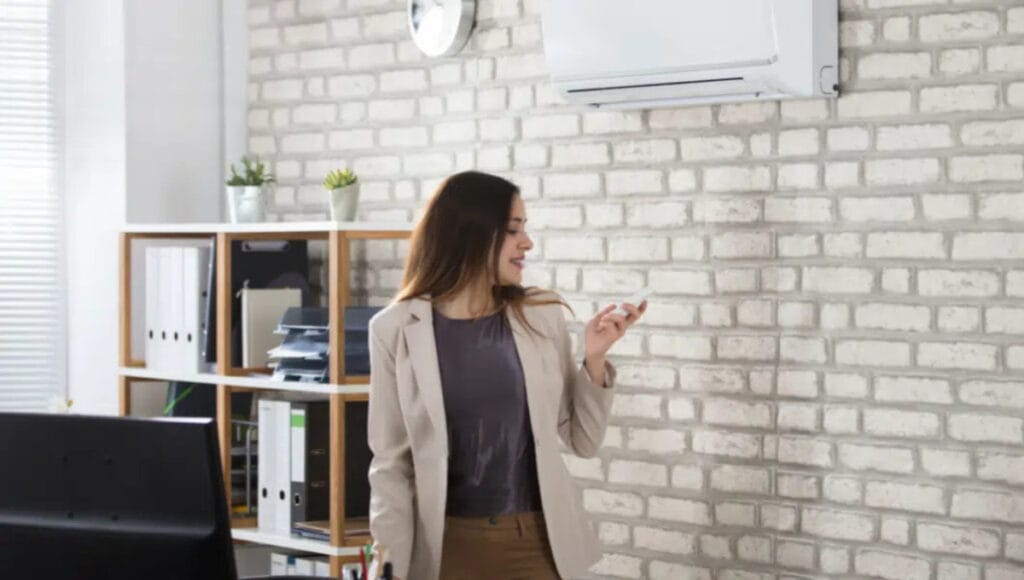
Heating hacks to save more this winter
At DEEPCHILL, we’ve worked in thousands of homes across the Gold Coast, and one thing we know for sure: staying warm doesn’t have to mean skyrocketing energy bills. With a few practical changes and smart habits, you can keep your home cosy and efficient this winter – even without investing in a whole new system.
Here are five heating tips our team often shares with local clients:
1. Warm the space, not the whole house
If you’re using a reverse-cycle air conditioner or any other heating source, focus on the areas you actually spend time in. We often recommend closing off unused rooms, especially bedrooms during the day, to reduce the load on your system.
Got open-plan living? Consider using temporary dividers or even just heavy curtains to help contain the heat in one section.
2. Insulate and seal
Up to 35% of heat can be lost without proper insulation. One quick fix we suggest is to do a 5-minute “draught check” at home:
- Can you feel air moving near doors or windows?
- Are there obvious gaps under external doors?
- Are vents from unused rooms left open?
You don’t need a full reno – just block what you can. A rolled-up towel at the door, a stick-on window seal, or closing off ceiling vents can make a difference.
3. Use heating mode efficiently
We see many homeowners setting their AC to full blast – 28°C and climbing – thinking it’ll warm the house faster. Truth is, that just forces the system to overwork.
Instead, set your reverse-cycle AC to around 20–22°C in winter. That’s the sweet spot for comfort and energy efficiency.
Pro tip from our techs: use the “heat” mode, not “auto”, so the system doesn’t switch back to cooling unexpectedly during mild days.
4. Schedule it, don’t run it all day
Continuous heating wastes power. If you’re home in the evenings or early mornings, use a timer or smart AC controller to run the unit just before you wake up or arrive home.
Not sure how to do that? Ask us – we install smart controllers for ducted and split systems that can automate everything, even from your phone.
5. Let the sun in, then lock it in
Gold Coast winters may be cool, but we still get plenty of sun. Open up blinds or curtains in sun-facing rooms during the day to let in natural warmth. Once the sun dips, close everything up to trap that heat inside.
Want extra warmth? Heavy curtains (especially floor-length ones) can act like insulation at night. We’ve seen clients drop their heating time by 30% just by using better window coverings.
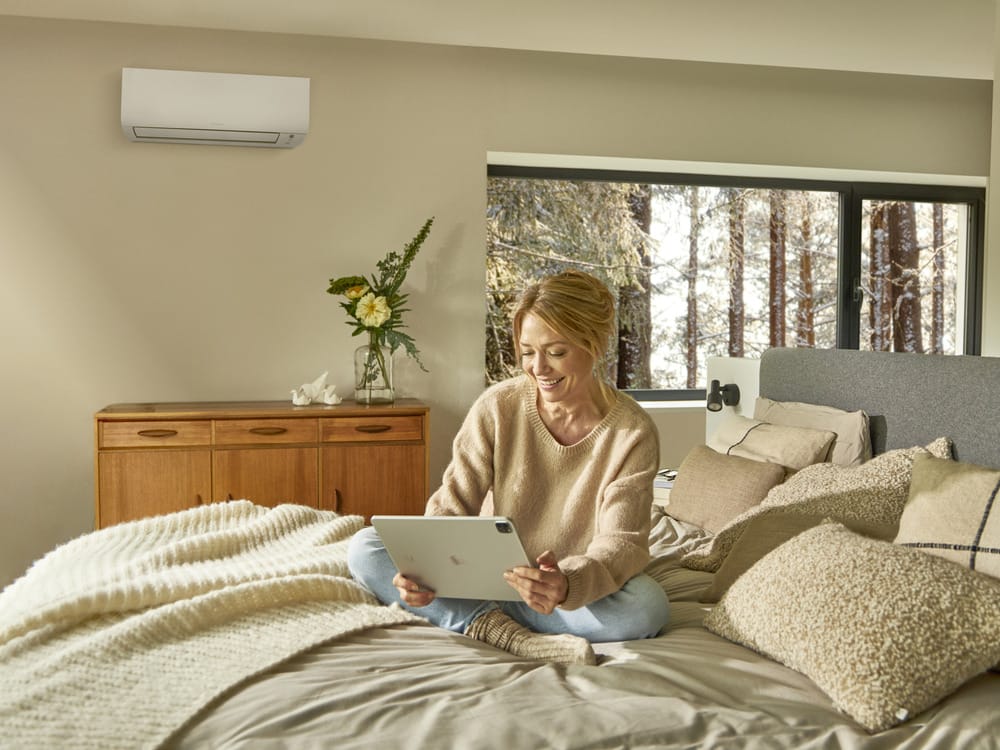
Want to heat your home smarter?
At DEEPCHILL, we don’t just install air conditioning – we help you get the most out of it. Whether it’s choosing the right reverse-cycle system or upgrading your control setup, we’re here to help.

